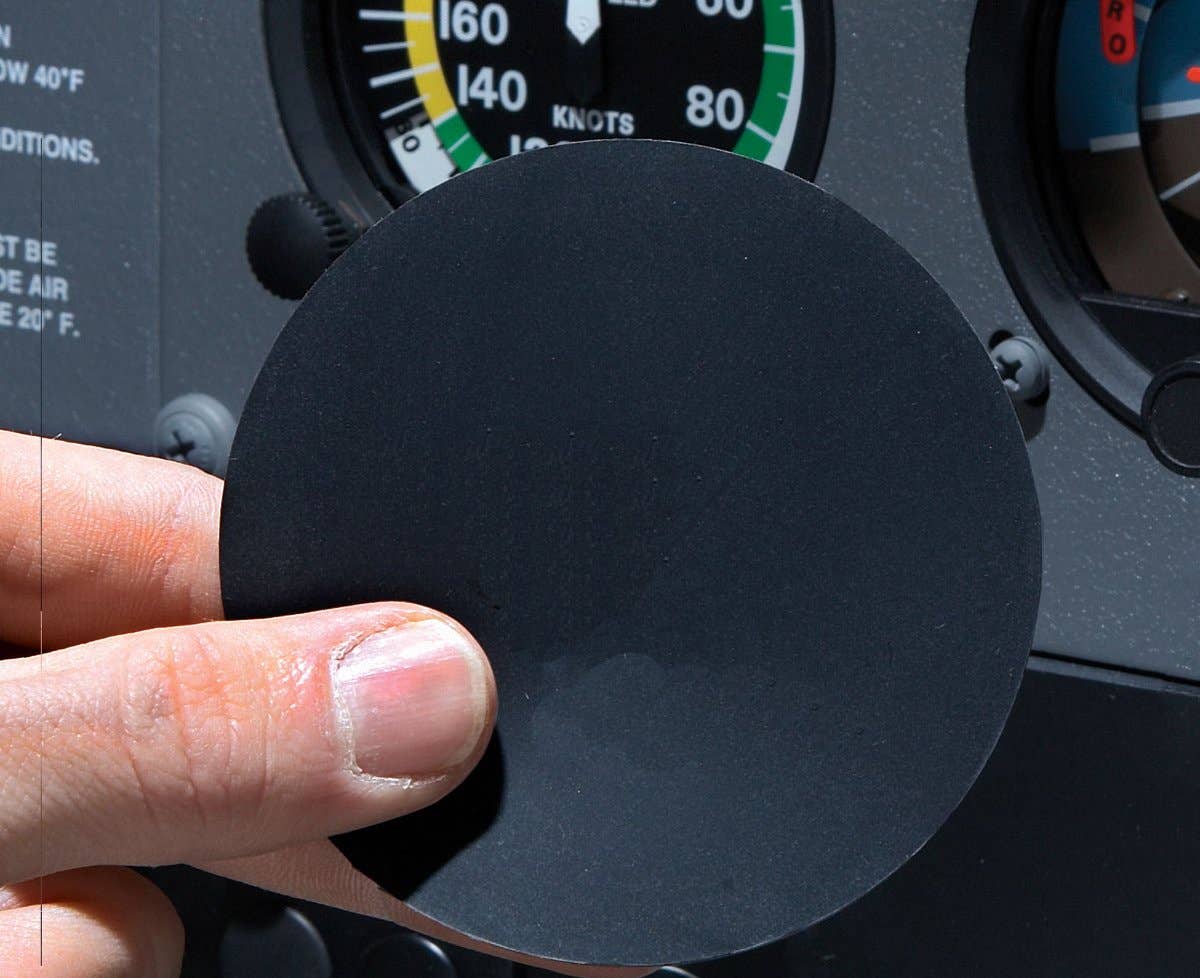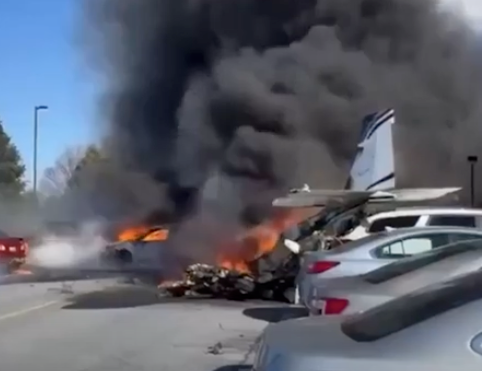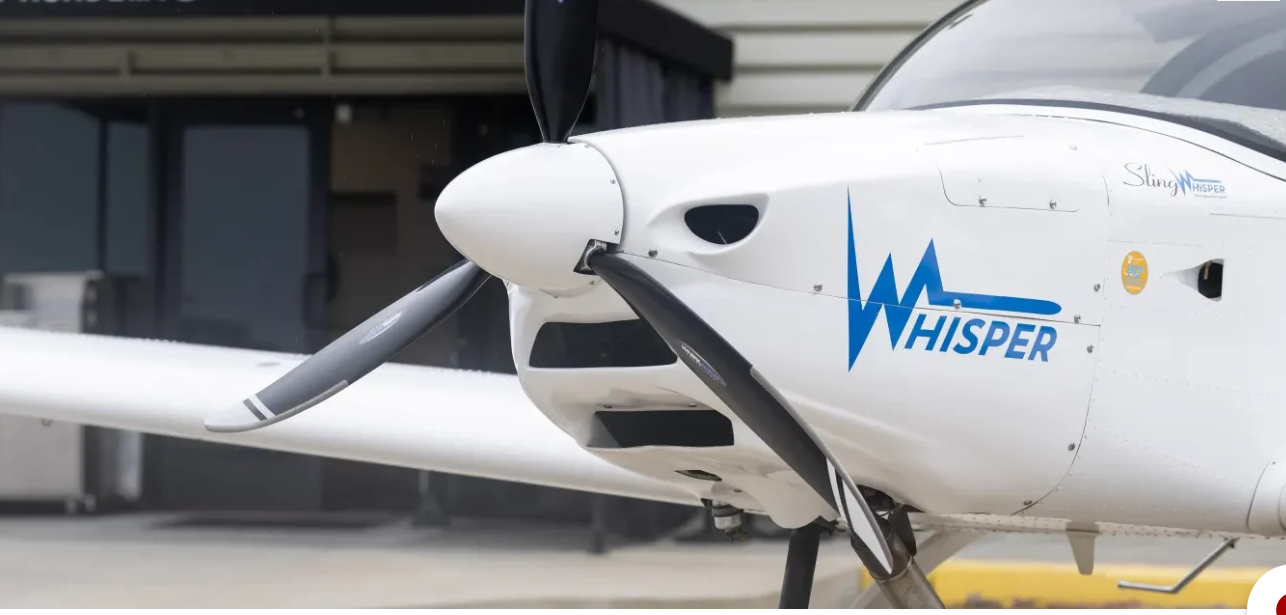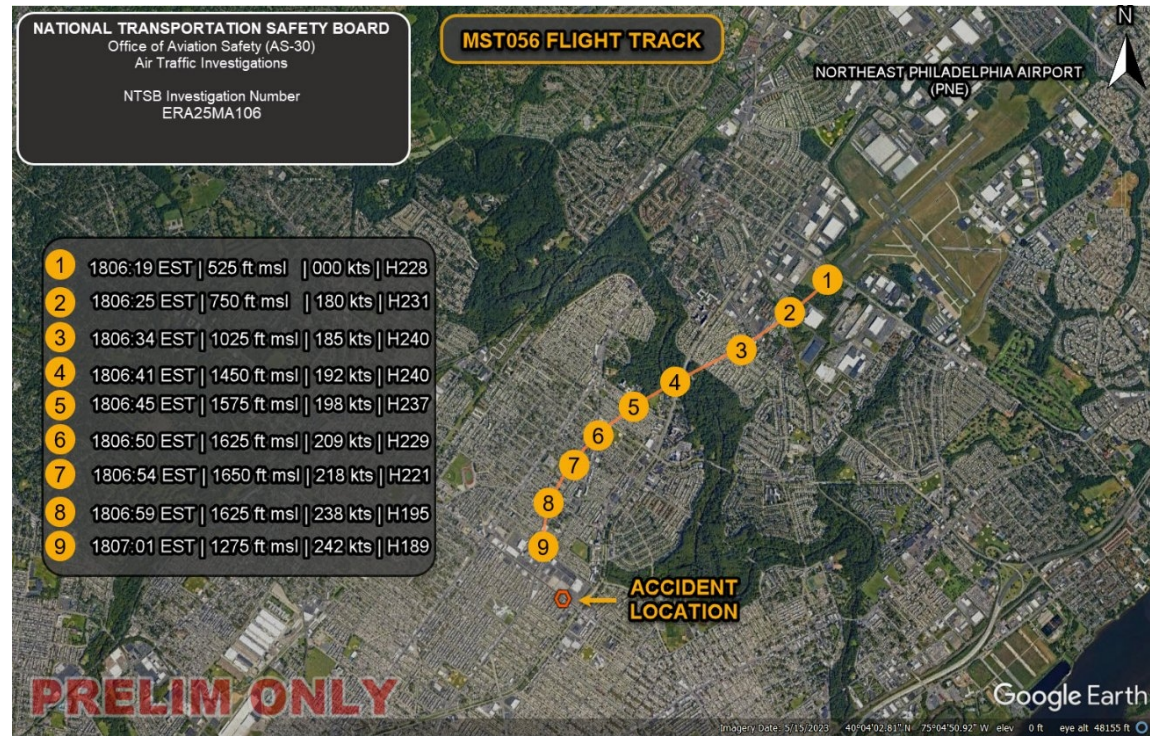Top Letters And Comments, November 30, 2018
This week’s letters brought comments from readers about flying without an ASI, using GA airplanes for Thanksgiving travel, aircraft registration, air traffic controllers and old navigation practices.

Who's Afraid Of A Dead ASI?
I could hear the pending screams as I was reading the article. I'm confident the self-appointed expert safety nazis are whipping themselves into a frenzy...I anticipate the storm is already bursting on the phone and email receptionists. (Well, maybe not on the phone. It's easier to express offense and indignation in an email. Sigh.)
Anyway, one of the Pauls made excellent points about enhancing safety by encouraging pilots to be proficient at flying without ASIs. He reinforced his idea with very good examples. He even caused me to plan a conversation and some flying with my favorite instructor.
But he screwed up. The experts of "you-can't-be-too-safe" didn't hear his message. All they heard was a reckless Viet Nam PTSD nut-case inciting simple pilots to try machinegunning innocent rivers!
Instead, he should have started his article with the obligatory foot scraping, bowing and kneeling at the foot of the Safety God Idol. He should have made the required liability-relieving caveats about, "I'm an expert, don't try this at home" and/or "obtain the guidance of an FAA 'certificated' instructor." If he had done the Safety/Liability Double-Shuffle first, the ambulance chasers and NTSB wanna-be's might have been placated.
As for me, I hope he doesn't get fired or silenced. I sure enjoy his articles and common sense. Thanks to whomever hired him. Between the two Pauls at AvWeb, I keep reading and thinking about this flying stuff.
Paul Tappen
For what it's worth, I've been flight instruction for over 40 years in gliders, and always required pre-solo students to make at least one flight with the ASI and the altimeter covered. That reinforces using the TLAR ("That Looks About Right") technique in the pattern and landing. Often the first time one of my students does this, the airspeed control is the best in his career!
Jim Kellett
I'll add that, in the little Pipers, you'll need to disable the electric stall-warning horn. I'm fond of simply turning off the master switch, immediately after takeoff... late in the student's first night flight, while doing closed traffic. (I coordinate this with ATC, so light-gun signals get tossed in, too). You'd be amazed (?) how many students pour on the coals after their successful landing. At which point, I close the throttle and gently ask: "Would you take off at night with the electrical system inop?" One poor bugger got an unexpected first-night-flight treat. A (real) engine failure after takeoff, at 600 feet - just as we entered the crosswind turn. The outcome was just like we had briefed it. Another story, for another day.
Tom Yarsley
Did You Use Your Airplane for Thanksgiving Travel?
No, because -
a) as the patriarch of the family, they come to me
b) too much food and tryptophan coma knocked me out of the IMSAFE ballpark
Rollin Olson
No--we're in the FBO business. We are required by the City to be here every day, so when all the employees want off for holidays--I man the place by myself. That's OK--it's a rare chance to be alone with my thoughts!
Jim Hanson
No, I didn't use a g.a. airplane for Thanksgiving travel this year.
I did use general aviation airplanes for Thanksgiving travel (or tried to) for a couple decades. I gave it up as foolish because of some truly awful weather experiences - primarily dealing with ice. Almost invariably one day of the Thanksgiving weekend - Wednesday to Sunday - would include freezing rain or low ceiling and moderate to severe icing in clouds. I picked up too much ice on trips where I thought I could avoid it and postponed flights - missing work - on trips where I knew I wouldn't be able to avoid ice.
After deciding not to fly g.a. over Turkey Weekend, I had big delays due to wx when driving or taking the airlines. I finally made the decision to stay home over Thanksgiving and have never regretted it. This year, on Thanksgiving Day, I watched freezing rain on and off during the day from the comfort of my living room, not needing to step outside the door, with the airplane safe in its hangar. Very low stress.
Rick Durden
Aircraft Registration
I have heard skepticism from aircraft owners about re-registration. They argue that we got along just fine for a century without it, without dire consequences. Owners already had both obligation to register, and incentive to do so; and sellers had incentive to report the sale. They complain about the cost - to the FAA and the owner - of registration renewals. It's not just a cost to the owner (although, it does seem odd that it costs $5 to fill in a fill-it-yourself online form): the FAA has to operate a small empire to process all those registration renewals, and the FAA is already overworked, often with long processing delays for other matters. And, of course, there are enforcement costs, too. They worry that re-registration may just be bureaucratic empire-building and security theater.
Obviously, as the FAA says above, they are wrong. Still, to address their concerns, I think it might be helpful to illustrate how registration renewal is vital for safety, regulatory enforcement and all levels of law enforcement. For example: - What percentage of in-service aircraft were incorrectly registered in the old system? - How specifically does re-registration improve safety, compared to the old system? (e.g., what percentage of owners of active, in-use aircraft were not receiving ADs, but do now - and what percentage of them were using maintenance shops that did not look up the ADs?) - And, translating that, how many accidents does the regulator believe have been prevented by re-registration? How many lives saved? How many does it think will be saved in the next, say, 10 years?
How does local law enforcement use re-registration, in ways it did not use the old registry? (E.g., how often does local law enforcement use the database? How often did a local law enforcement search produce an outdated registration, under the old system? How often does the new database merely note that the registration has expired, or provide an "owner" that turns out to be a shell? How much of an improvement is the difference between those figures?) - Translating that, how much crime reduction has local law enforcement achieved using the new system? Or, how many crimes have been solved, that would not otherwise have been?
Greater transparency, providing compelling answers along those lines might do a lot to address "security theater" skepticism, I would think. Perhaps a member of the aviation press would like to follow up on that, and help FAA to get greater buy-in for the re-registration system?
Thomas Boyle
Remembering ATC's Secret Weapon
You bring up a good point. All pilots ought to know about, do a quick review of and remember that 7110.65 exists. Before I went to work in a flight test ops organization, I'd never heard of it. I used the tenets contained therein to "eat" a tower controller one time, too.
Larry Stencel
KK sounds a bit like Don Brown of AVWeb's "Say Again?" series of articles. It's always enjoyable to work with someone totally dedicated to their job. Thanks for reminding us about the unthanked masses behind the mikes. We just came back from the grandparents' house, flying through JFK's airspace on Sunday night after Thanksgiving. The frequency was as busy as Oshkosh after the airshow, yet the controllers perfectly vectored our little Cessna through the fray. Thank you.
Kirk Wennerstrom
Navigation
I agree that so much in the digital age allows us to do things with ease that in previous years required great skill, acquired only after much study and practice. There indeed can be a loss mental agility and a loss of appreciation of the wonders of nature if we let the machines do all the heavy lifting, intellectually and physically. But, there's also the possibility for the opposite to occur. The digital age, in part, encourages people to get out there and do it, even if only to show off with selfies. For instance, there's now an entire new sub-culture of "bush flying" for fun that's expanding largely due to online videos.
And as to those stars, the fault is not in our computers, but in our usage. During a recent bull session that ran past twilight at our grass strip, a discussion over which bright dot was what star/planet/UFO arose. Within a few minutes, we'd all downloaded an app that let us hold our phones up and "sight" on heavenly bodies and thus identify everything (except the UFOs; they need to work on their UFO sighting algorithms). It was a lot of fun. There's probably several apps for this, but the freebie we are still using is called SkyView Lite (Disclosure: I'm not smart enough to have any involvement with the company).
Jeff Boatright
Not a criticism. An observation. Suspect the Navigation article reader interest inversely proportional to GPS obsession. Aviation Cadet pilot training circa 1956 required demonstrated skill in celestial navigation. Our most popular and proficient fix was 2 stars plus Dallas, Texas. We also pretended to enter a holding pattern using ADF aural null. After three years of Air, Ass, and Alcohol at Ramstein, Germany flying the no-flap F-100C (accident rate 62 per 100K) with only ADF; manna from heaven arrived in the form of VOR/DME.
Gary Barnhill
Another home run by Paul Bertorelli. Superbly written and right on the mark (he must be using that unerring GPS to write his articles! :)). Yes, the guidance afforded by GPS is remarkable and facilitates unerring navigation, but it absolutely contributes to the sad loss of the art of navigation and seeing the beautiful big picture. I always brief a flight on a nice big paper chart. It just feels more comfortable. Then I use my on-board GPS to cross-check my in-flight progress. That feels good too.
Andy Hoffer
I enjoyed your story about navigation. It brought back memories. I learned to fly in 1960, so finger on chart was mandatory!
Back in the late 1960's, a friend asked me to fly to Bermuda and bring back her husband's sail boat after the Bermuda Race. Seems the race crew went to the after race parties and then flew home. It was a real experience. Sextant navigation, taking the water temperature and when the temperature jumped 10degree we knew we were in the Gulf Street and being set eastward by 6 Knots. Also used Consolan when we could receive it at night (that required a Consolan Chart and only gave us a line location). We did a good enough job that on the last morning, in the fog, we heard the waves breaking on the beach at Montauk before we saw the beach.
In 1964, I studied in Egypt and East Africa. We had a night flight from Nirobi, to the Sudan, to Rome on a BOAC Vickers VC-10. I spent the night on the flight deck flying over very dark Africa. The sextant and navigator did it all. About every half hour the navigator would hand a slip of paper to the captain with a course change.
I remember when you were based in Oxford and would come to our safety meetings at KBDR. I still keep in touch with Bob Martens. All these years later and I am still head of the airport users group, Friends Of Sikorsky Airport. We now have almost 500 members on our email list. The $46 Million Runway Safety Area took 23 years and would never have happened without our group getting the State Legislature to change some laws and us converting the media to supporting Sikorsky Memorial Airport.
David Faile
Paul, every time I used to pick up my sextant (not an octant, by the way) I used to marvel at what our ancestors had figured out centuries ago. And the precision they employed. I wish we had guys that smart today, laying on their backs, looking up...and wondering.
Ward Miller






